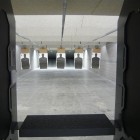
Roster of Exonerations Shows the Particular Vulnerability of Juveniles Under Questioning
|
Carl Williams was 17 years old when Cook County police arrested him in January of 1994. Williams was charged with two counts of murder and one count of sexual assault. He confessed to the crime after a police interrogation and along with four co-defendants, Williams was sentenced to life imprisonment without parole in 1996. Now, 18 years later, Williams, who claims he is innocent, has been granted an evidentiary hearing and a re-sentencing by the 1st District Appellate Court of Illinois. “The case of the wrong Carl” is a prime example of change in the way Illinois judges view confessions, said Steven Drizin, director of the Center on Wrongful Convictions – and co-founder of the Center on Wrong Convictions of Youth - at the Northwestern University School of Law. The Cook County justice system interrogates its juveniles as they do its adults. And the center is quite certain that of the 100-plus juveniles currently serving life without parole sentences in the state, many of their convictions were based on false confessions.



